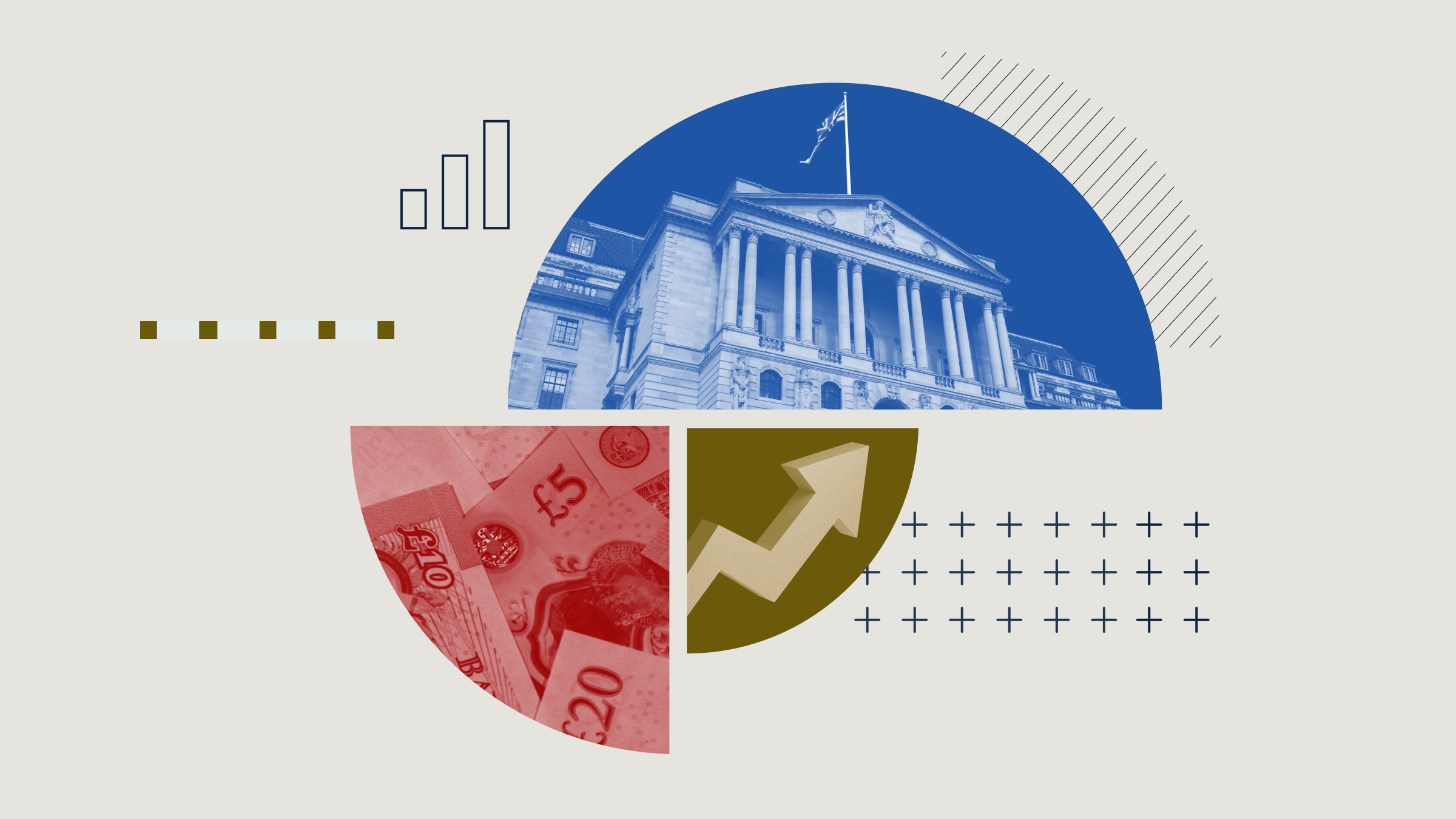Last year, we launched our Morningstar European Manager of the Year Awards based purely on the qualitative insights of our team of 28 analysts across Europe (click here to see the winners). Over the ensuing period, our research in Europe has continued to grow, with our analyst team expanding and 1,100 funds now under coverage.
Based on the strength of that research, we are pleased to announce the nominees for the 2011 European Manager of the Year Awards. Once again, we are giving two awards that recognise the best fund managers in all of Europe: European Equity Manager of the Year and Global Equity Manager of the Year.
These awards are designed to help investors cut through the clutter and quickly access the best forward-looking insights of our qualitative research team. While nominees should have produced strong performance for investors in the last calendar year, in keeping with our approach to qualitative research, we place a great deal of emphasis on the overall merit of the offering using our five-pillars assessment. In addition to performance, we weigh the quality of management, the strength of the process used to run the fund, the quality of the parent organisation--including how it treats investors in its funds--and costs.
The managers nominated by Morningstar’s European analyst staff for each award are as follows. The winners will be announced at the inaugural Morningstar Investment Conference, Europe in Vienna on March 10.
European Equity Manager of the Year
Frank Hansen
Allianz RCM Small Cap Europa
Frank Hansen has shown himself to be among the better managers around when it comes to European small and mid caps (although billed as a small-cap fund, Hansen’s universe permits him to go firmly into mid-cap territory, up to EUR 4 billion in market cap—a flexibility he has often used). He has been at the helm at this fund for over a decade and during that time has consistently executed a pure bottom-up process focused on high-quality growth stocks while leading a stable team of dedicated small cap analysts in Frankfurt and London. While his style necessarily entails courting more price-risk than value-oriented managers, Hansen helps manage risk by spreading assets across roughly 100 names and limiting single stock weights up to 3%. That said, the process is not bound to a benchmark and Hansen has added notable value for investors over the years via active positions.
The fund’s performance in 2010 was mainly driven by strong picks such as Asos, Weir Group or Dufry. Also off benchmark picks like Delticom or Burberry substantially added value to the 34.7%(EUR)/29.9%(GBP) return in 2010, beating its average Europe Mid-Cap Equity peer by 12 percentage points, a top-decile showing in the category. The strategy clearly entails risk, as was on display in 2008, when the fund’s loss exceeded the category norm, but for investors seeking exposure to faster-growing European small and mid-caps, it has more than proven its worth.
Guy Lerminiaux
Petercam Equities Euroland
Guy Lerminiaux has accumulated over 20 years investment experience and has been CIO, Equities for Petercam since 2002. In this role, he is of critical importance in the strong investment culture that characterises this small Belgian boutique. That culture can be seen in part in the very reasonable management fees applied across Petercam’s full product range. This fund, for example, carries a management fee of just 1% for the retail A shares, and a TER of just 1.15%, well below the median for its Morningstar Eurozone Large-Cap Equity category.
Lerminiaux is a genuine stockpicker. He prefers to meet with management before investing in a company, and is not afraid of taking a contrarian stance. In addition, he’s humble enough to recognise his own mistakes such as underestimating the financial fiasco in 2008. While 2008/2009 were perhaps too dominated by top-down factors for this stock picker, he showed in 2010 that he had not lost his evident flair, the strength of which is attested to by his long-term record here.
Cédric de Fonclare
Jupiter European Special Situations
Cédric de Fonclare earns high marks with our research team, and for good reason. Not least is his experience. He worked on this fund with the previous manager Leon Howard-Spink from the year 2000 taking over full responsibility in July 2005. He has also been responsible for the European (ex-UK) portion of the Jupiter Global Managed fund since May 2001 and has been manager of the group’s pan-European SICAV (European Opportunities) since January 2003.
De Fonclare spends the bulk of his time reviewing and analysing stocks and does not start with any particular bias to growth or value. His pragmatic approach combines stock selection with a strong awareness of the macro environment and often his top-down analysis serves as a roadmap from which he has benefited on various occasions in the past. At the stock level, he looks to understand the growth dynamics of a business, the potential for change and the extent of the undervaluation in the share price that will create value for shareholders. He is benchmark aware but not benchmark constrained and therefore his flexible approach results in a portfolio that will vary according to the underlying macro/market dynamics.
De Fonclare’s process has been tested under different market conditions: over his tenure the fund has outperformed the FTSE World Europe ex UK index and peer group average; losing less than the index and his peers during the difficult 2008; marginally underperforming both in the rising market of 2009; and ahead of the two in 2010. We believe he is an excellent manager who genuinely cares about delivering solid returns for investors and has proven his capabilities well through time.
Gary Wright
Kempen European Small Cap
This fund is able to invest in both mid and small caps across Europe, and veteran manager Gary Wright has made great use of that flexibility through time. Wright, who can draw on the work of six high-calibre colleagues, employs a consistent, high-conviction approach which results in a portfolio of only 30-40 holdings. This gives his picks more than enough weight to have a real impact. The vast majority are healthy companies with capable management, high returns on invested capital and high cash flow yields. A smaller part is invested in companies undergoing some kind of organisational change.
During his five-year tenure, the manager has outperformed his typical peer by almost 3% annualised. More recently, Wright outran his category by more than 10% in both 2009 and 2010. As a result, the fund ranked in the category’s top decile over the last two years. Stock selection from non-euro countries such as Switzerland performed especially well, including Metso Corporation, Rieter Holding and Mobilezone. In addition, underweighting the so-called PIIGS countries and the financial sector proved to be astute calls. While the fund exhibits an above-average risk profile, we think investors will be rewarded over the long term and the fund is a great choice for small/mid-cap exposure.
Global Equity Manager of the Year
Frank Lingohr
Lingohr-Systematic-LBB-Invest
Frank Lingohr, who acts as advisor for Lingohr-Systematic-LBB-Invest and a range of other regional offerings, has done an outstanding job for investors for almost two decades. He founded the German asset management boutique Lingohr & Partner 18 years ago, and has since then built a compact, yet very skilled team of investment professionals. Lingohr developed the quant model that is used to manage all of the firm’s funds. This is supported by a qualitative overlay that puts his extensive experience in the industry to excellent use as the team will not blindly follow the models’ signals; e.g. the model’s recommendation to overweight financials in 2007 was not implemented--a decision that proved beneficial in the ensuing financial crisis. Our analysts hold the shop itself in high regard; the house demonstrates a clear focus on generating good long-term results for investors and sticks to its core competencies.
In 2010 the fund finished nearly eight percentage points ahead of the category average, mainly helped by stock selection in materials and industrials, and despite headwinds resulting from the low US weight which is driven by equal weighting countries in the portfolio. The team’s style, which pays little heed to the benchmark or peers, comes with risk--that was evident in 2008 when the fund’s high exposure to cyclical sectors and a US Dollar underweight sent it to a 47.6% loss, relegating it to the category’s bottom quartile. However, the team has shown an ability to use that risk to very good effect through time. Lingohr-Systematic-LBB-Invest ranks in the first quartile of the Morningstar Global Large-Cap Value equity category over three, five and ten years at end of January of 2010.
Graham French
M&G Global Basics
Graham French embodies many of the qualities we like to see in a fund manager. He has been with M&G for over 20 years and he heads a strong and stable team. His investment approach is long term and focused on selecting companies that allocate capital sensibly and are respectful of shareholders, which is consistent with his focus on creating value for unit-holders as well as protecting their capital. He is also a patient investor and his process is time-tested. In the Global Basics fund, he seeks truly long-term opportunities in the building blocks of the global economy. This makes the fund a higher risk proposition as his themes can be out of favour at times, but French has the patience to ride out short-term underperformance secure in his assessment of a stock’s ultimate potential.
French’s long-term approach has been clearly in evidence over the last three years. In 2008 the fund experienced a significant decline, losing 26% of investors’ money. Importantly though, the manager maintained his approach, and did not significantly alter the portfolio. Investors in the fund consequently benefited from a very strong recovery in both 2009 and 2010. The fund returned 35.4% and 27.7% respectively in these years, thereby recovering the losses sustained in 2008 and significantly outperforming the peer group. French is a truly skilled manager who is clearly passionate about delivering excellent long-term returns to his investors.
Vincent Strauss
Comgest Growth Emerging Markets
Magellan
Vincent Strauss is a veteran emerging-markets helmsman. He has run the flagship Magellan fund since 1994, and took the wheel of Comgest Growth Emerging Markets in 2005. He clearly considers his clients as long term partners rather than merely sources of asset growth. Indeed, for some time now, he has been advising investors not to put more money into emerging markets in the near term—an action that’s far too rare, but one that is highly responsible.
Over his lengthy experience, Strauss has built a highly enviable track record of outperformance. He is distinguished by his unwillingness to compromise on his stringent investment criteria, best summarised as “quality” and growth” in that order. As such, he will not invest into highly cyclical names and avoided financials well before the 2007-2008 meltdown. This might lead to periods of underperformance which makes the fund’s 2010 outperformance even more impressive as the market remained mostly dominated by cyclical materials stocks. Together, Strauss’s focus on stewarding investors capital, investing sensibly in notoriously difficult terrain, and proven ability to outperform for his fund’s shareholders through time makes him a strong candidate for our Manager of the Year awards.
Jorik van den Bos
Kempen Global High Dividend
Jorik van den Bos and his team have a longer record than it might appear. Indeed, at ING, they managed a comparable global dividend strategy with similar peer-beating results over a five-year period. The core team has been together for a decade and hasn’t missed a beat since coming to Kempen--they’ve stitched together an impressive three-year record at a time when many dividend peers have posted poor results from holding dividend-scrapping financials.
The team’s tried-and-tested process puts a spotlight on yield, but definitely not at the expense of all else. While a stock must clear an initial 3.3% dividend yield to be eligible for the portfolio, the team thoroughly researches sustainability of the dividend. This ensures a portfolio of high-quality companies instead of the all-too-common high-dividend, low-returning stocks. The team is also willing to pick up names down the market-cap ladder where they see value. Last year, strong contributions came from, amongst others the oil-services sector, with names such as Fred Olson Energy and Seadrill Limited contributing strongly. Financial-services stocks also pulled their weight. Such selections resulted in a top-quartile finish for 2010. The steady nature of the team, a proven record of success over time, and a strategy that emphasises yield without sacrificing quality all tilt in favour of van den Bos.
























